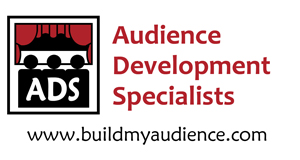I was at the thrift store last week on one of my treasure hunts, and I came across a book by T. Harv Eker called Secrets of the Millionaire Mind. Seeing that I was in a thrift store, it was a little ironic, but I picked it up acknowledging that perhaps I do not have a “millionaire mind.” Maybe it would be good to see what a millionaire mind looked like.
The book left a big impression on me. It wasn’t about get rich quick schemes, it was all about the mentality of a millionaire and why they become millionaires. Here are a few points:
1. What you focus on is what you will become. If you focus on being poor and the challenges of being poor, that is what you will get. “Poor me” will only get you poor me. If you focus on wealth and building wealth, this is what you will get.
2. Many of us have a jealous streak about millionaires and tend to view them as bad, greedy people. Some of us were raised to be guilty if we accumulate money. Only some millionaires are greedy and bad and then there are a group that are generous people and think of others often.
3. If we want to become more wealthy, we need to consider the people that are surrounding us. Are they negative or positive? Do they have wealth and/or a wealthy attitude?
4. If we want to help more people, money will come in handy to help more people.
5. Starting small to change your blueprint of wealth and adding to it everyday will take you to a more positive place and closer to becoming a millionaire.
There were many, many other points he made. It had me wondering about the artist/non-profit mentality -the starving artist syndrome, the don’t get ahead non-profit model. Are these mentalities creating a natural downfall? If an artist gets rich, is he still a “real artist?” If a non-profit is “profitable” are they selling out? I think it would be good if we could examine the collective mentality we have for the arts and our arts businesses. We tend to come from a place of poorness in order to attempt to accumulate the support that the arts/artists need.
The culture is shifting slightly. We are now starting to focus on what the arts does for the economy. The arts can create prosperity for local economies. The arts contribute to the welfare of our society. Yes! I like this.
Though, what I would love even more is a healthier collective mentality that the arts deserve funding because the arts make life better for everyone. This healthier collective mentality would attract more funding simply because we no longer feel poor with all the poor challenges. Instead we will feel rich with all the richness the arts possess.
We have forgotten to celebrate the richness – the richness of how the arts make us feel, how they can make us feel more alive, how the creativity the arts gives us makes our lives richer. We have forgotten to invite people to be aware of and feel this richness firsthand. Instead we beg for funding and attempt to prove we are worthy. What about feeling worthy right from the start? What about inviting others to feel the worth of the arts? Could this make a huge difference?
Perhaps this is a floofy floo of a thought, but would it hurt to try? Would it hurt to start from a place of wealth that the arts already possess and celebrate the arts? Can we envision a healthier arts world by seeing what it could be instead of what is not at the moment? Can we see healthy funding and large audiences simply because the arts are rich and worth celebrating? I’m willing to shift if you are (wink included).
Cheers to happy and loyal audiences,
Shoshana
Shoshana Fanizza
Audience Development Specialists
https://www.buildmyaudience.com
“Never treat your audience as customers, always as partners.”
~James Stewart
Although we are not a non-profit, if you would like to support ADS to continue our work, you can donate here.
***Purchasing my book will help support ADS and our mission.***
New eBook! The How of Audience Development for the Arts: Learn the Basics, Create Your Plan






This is exactly the mentality that I want non-profits to have. The scarecity mindset is deadly. I think the title “non-profit” is misleading not only to the public, but to the people who start and run them. The goal of ANY business is to profit. Profit doesn’t mean get rich, necesarily, but the offerings of a business should bring in more money than it spends. If a business is profiting, it can grow. And by growing, it can increase its reach.
All that non-profit means to a 501c3 organization is that the PEOPLE who run it do not get a share of profits. In a standard business, the owners can.
I run into 501c3 orgs that say “we can’t do that [for lack of money], we’re a non profit.” The response in my head is “you can’t do that for lack of money because you have no idea how to run a business.”
I’ve ranted about this on a blog post on my blog… I think I’ve shared it before, but my site is under construction.
Hi Gedaly,
Thanks for stopping by. I like your point that the non-profit status can be a little misleading to the public as well. One of the biggest problems I came up against was the fact that people thought that when a non-profit stated their budget, it meant they had the money to spend. “Then why do they need more money?” They don’t realize that a budget for a non-profit is the amount of money that needs to be raised in that year for the business to function fully. It can be viewed as a backwards way of running a business.